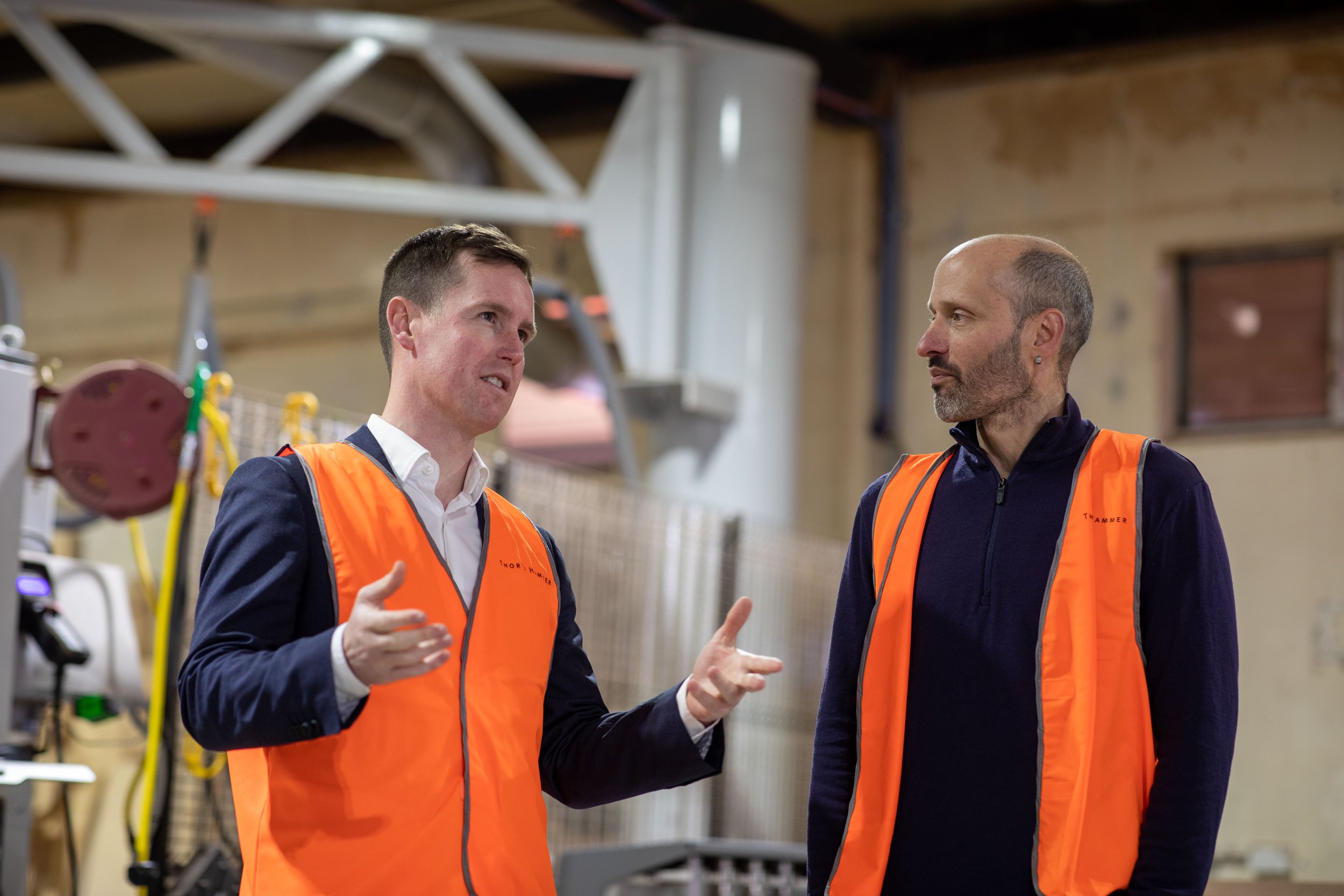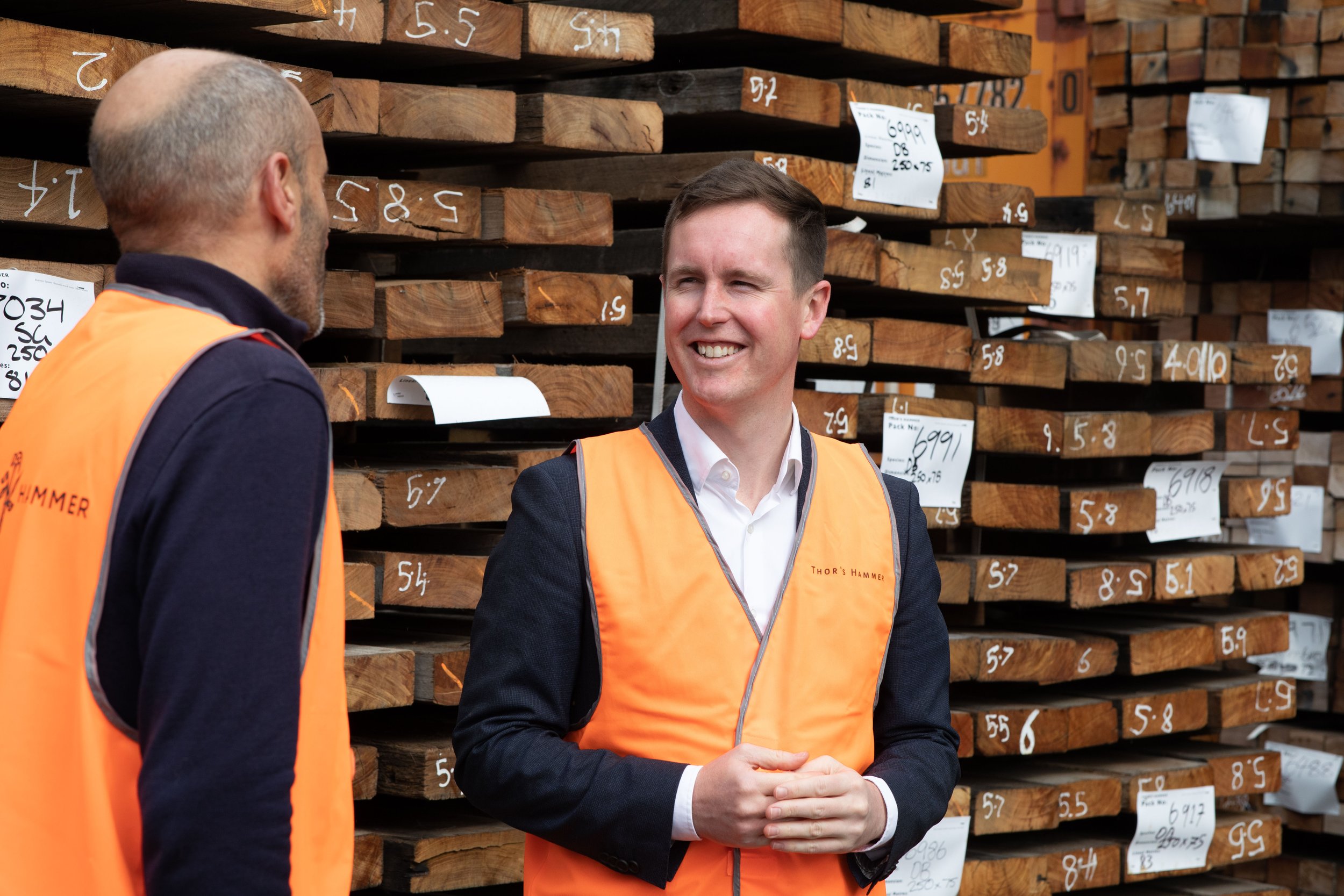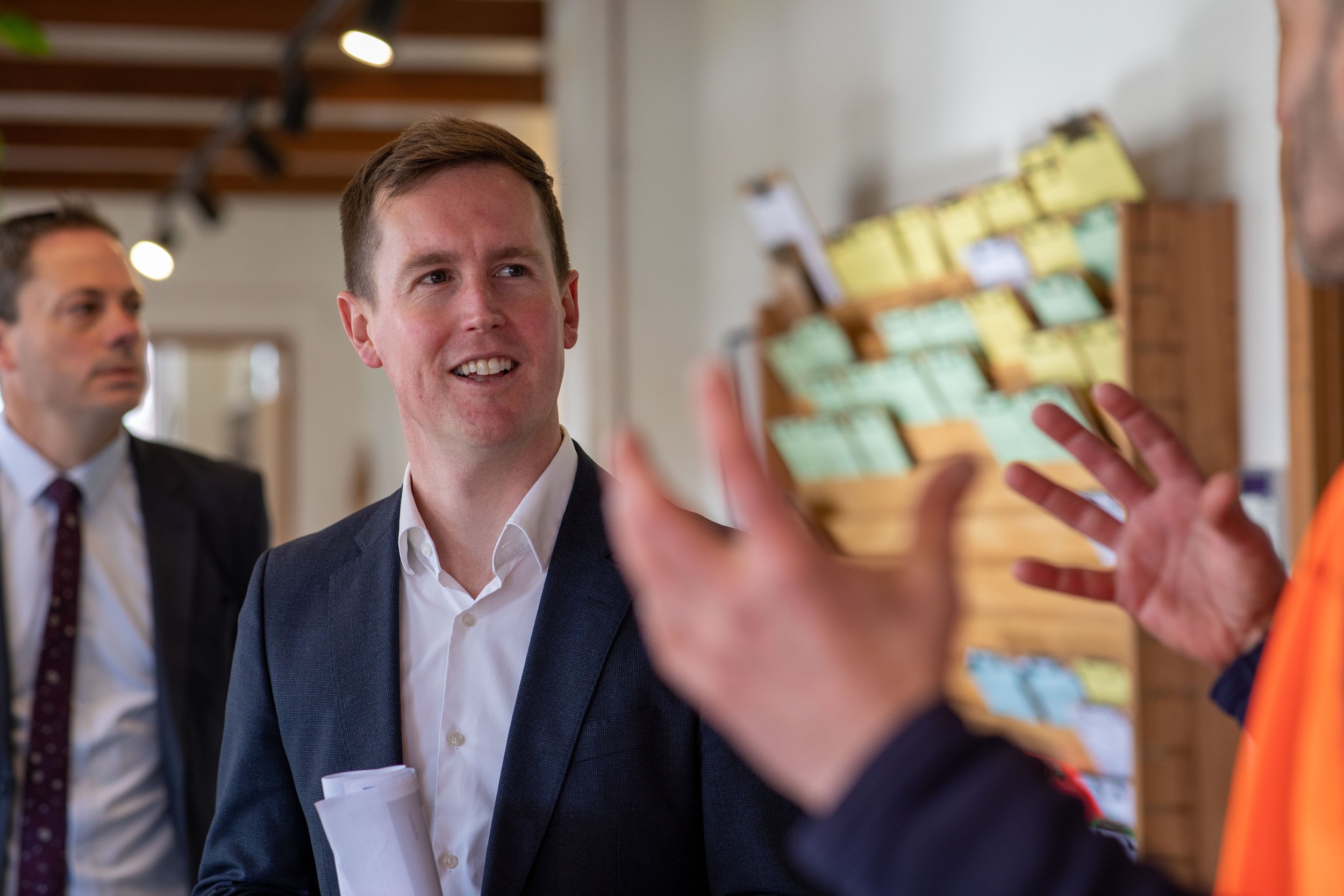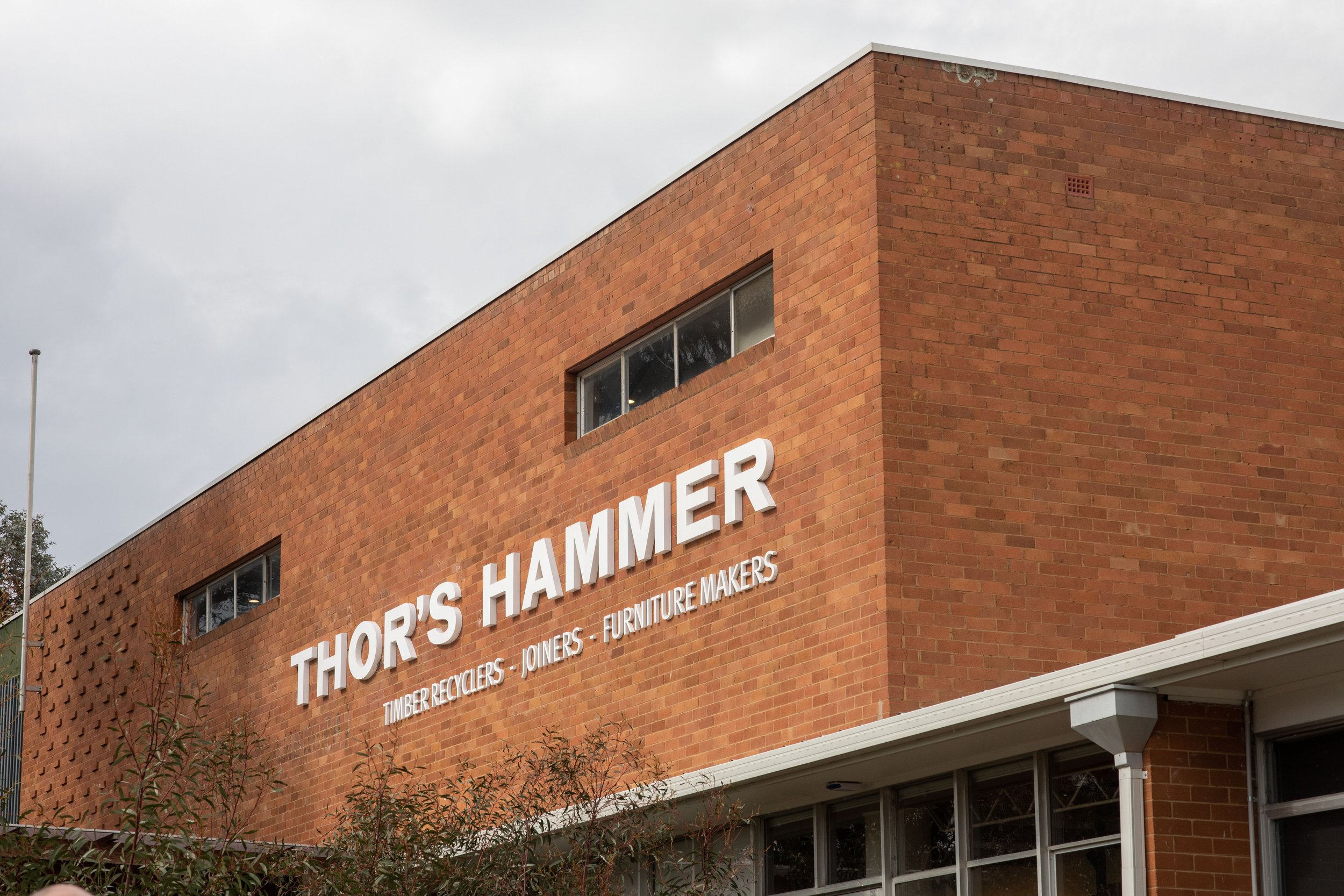The Circular Economy in Action at Thor's Hammer
April 2024
The recently published ACT State of the Environment Report 2023 highlights Thor’s Hammer’s contribution to the ACT’s Circular Economy.
Photo: A local demolition in progress - ceiling joists and beams were salvaged for reuse in new products. Source: Rohan Thomson, Thor’s Hammer
We’re glad to see heightened discussion and engagement around ideas of the Circular Economy in the ACT region, a concept that has been ingrained in the fundamental ethos and operations of Thor’s Hammer since we first started back in 1994.
As described in the report the circular economy seeks to reduce the environmental impacts of production and consumption through the more efficient use of resources and it has become widely understood by these three principles:
Design out waste and pollution
Keep products and materials in use
Regenerate natural systems.
It requires keeping products, components, and materials in use for as long as possible.
“Waste is either designed out from the beginning of the production process or reimagined as a resource to make new products or materials, preventing the extraction of raw materials.” (1)
At the launch of the ACT Government’s 2023-2025 Circular Economy Strategy at Thor’s Hammer, ACT Minister for Transport and City Services, Chris Steel, described Thor’s Hammer as being a “great example of the circular economy in action in the ACT.” You can read the ACT Government’s 2023-2025 Circular Economy Strategy here.
Photo (above): ACT Minister for Transport and City Services Chris Steel in discussion with Thor at the launch of the ACT Government’s 2023-2025 Circular Economy Strategy launch in 2023.
In this most recent ‘State Of the Environment’ report, Thor’s Hammer is described as a business representing “a successful model for building relationships with demolition companies“.
The mission here at Thor’s has always been to keep demolition timber out of landfill by growing the interest in and demand for recycled timber, fostering relationships with local demolition companies, designing and making high quality furniture and joinery products, and telling the fascinating stories of the timber salvaged.
We aren’t alone in this mission... There are many local businesses helping to build circular economies within the ACT (and beyond)
OzHarvest undertake food rescue
Starting in Sydney in 2004 OzHarvest undertake ‘food rescue’, rescuing food from local businesses, reducing food waste going to landfill, and delivering it to local charities.
OzHarvest Canberra started rescuing food in 2008. With two yellow vans, the team rescues over 7,000 kgs of surplus food, delivering nearly 22,000 meals every week to people in need throughout the region. Canberra PCYC and OzHarvest Canberra celebrated the delivery of the 9,000,000th rescued meal in Canberra in July 2022*
*source:https://www.ozharvest.org/your-local-ozharvest/canberra/
Two Before Ten
With an acre of land in the heart of Canberra, the Aranda Urban Farm supports their cafes by growing fresh, sustainable produce throughout the year before turning the compostable green-waste from our cafes back into productive fruit and veg in a sustainable circular system. *
Two Before Ten also opperate an innovative ‘Produce Exchange Program’
Each one of their cafes also operates a produce exchange program. Backyard growers can bring in excess fruit or veg from their gardens and exchange them for in-store goods. Then see your harvest turned into UFG creations, café specials and meals on the cafe menus. *
Read more about how Two Before Ten are minimising waste and championing circular economies here: https://twobeforeten.com.au/blogs/minimising-waste/
*source: https://twobeforeten.com.au
Why we need a ‘Circular Economy’:
Australia has the third highest material consumption rate in the world at 38 tonnes per capita.(1) This is well above the global average of 12 tonnes per capita.
A 2019 report published by the International Resource Panel found that around 90% of global biodiversity loss and water stress, and a significant proportion of harmful emissions that are driving climate change, is caused by the way we extract and process natural resources.
In the ACT, we need an area approximately more than nine times the size of the ACT to provide the resources, goods, and services we consume and use and to regulate our pollution. Based on these findings, it’s clear our current resource use is unsustainable.
“Building industry and capability within the ACT region will be critical to facilitate the development of a local circular economy industry, and increasingly necessary for businesses seeking to respond to ACT Government procurement tenders.” (2)
We’re now salvaging close to 1,700 tonnes of timber each year from historic buildings, wharves & factory demolition sites throughout Australia. It’s something we love and are grateful to be able to do but would like to be doing so much more.
If you’d like to get some ideas about what can help to do to keep valuable hardwood timber out of landfill and give it a new and longer life then take a look at our website or drop in to our Workshop, Gallery & Showroom at 10 Mildura St, Griffith ACT for some inspiration and a chat.
Sources & links:
Click here to read the ACT Government’s 2023-2025 Circular Economy Strategy
Click here to read the recently released : ACT State of The Environment Report 2023 (1) (2)







